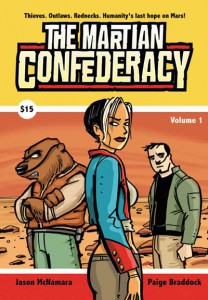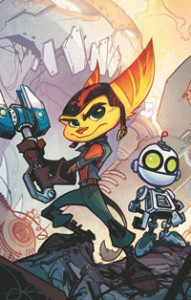Feed aggregator
Furries on the Radio?
In Southern California there is a mixed-format radio station, 93.1 FM, which is part of the Jack FM franchise. It’s an automatic station with no DJ’s that plays no requests. The station’s official slogan is “Playing What We Want”. Recently, this bumper appeared between songs on the station: “Just like being a Furry or canning your own tomatoes, playing what we want is a way of life”. Wow.
[HYPE] Sunnyville Stories
Kids toys I find disturbing
Where Cute Things Go
Bekyoot.com, in their own words, “features one-of-a-kind original designs and character merchandise inspired by life, laughter, and the pursuit of cuteness. There is a story behind every character — a life of whimsy and simplicity sure to set a smile on your face”.Though characters like Fat Cat, The Evil Landlord (a chibi raccoon fem), Pudge the Pug, and Kyoot Bear look like they stepped right out of Japanese culture, Bekyoot is actually based in Houston, Texas. Besides their web site they have an on-line comic strip (Where Cute Things Go) and of course a store full of merchandise featuring their characters.
POGO GAMES
Bears on Mars
Here’s the description of The Martian Confederacy, a new series of full-color graphic novels published by Girl Twirl Comics: “Toxic air. Bloodthirsty politicians. Drinking bears. Welcome to Mars in the year 3535. Stripped of its natural resources and forgotten as a vacation destination, Martians struggle to afford breathable air. Boone, Spinner and Lou were three outlaws looking out for themselves. But when a cure for Mars’s toxic air falls into the wrong hands, thieves are forced to become heroes. And as an entire planet gasps for air, three rednecks will fight for the survival of their planet.” It should be mentioned that the three main characters here are a human male, a female-shaped android, and an 8-foot tall talking bear working to protect his wife and two cubs. The eagerly-awaited second issue of the series is coming out in October. The Martian Confederacy is written by Jason McNamara (First Moon) and illustrated by Paige Braddock (Jane’s World). Visit their web site to see more.

image c. 2008 Girl Twirl Comics
Image gallery e621 is being closed down permanently
8 Vote(s)
Exclusive: Microsoft Kinect Supports Furries
3 Vote(s)
Courage on Two Wheels
3 Vote(s)
Season 5 - Show 15
The Jeremiads: Why the Geek Hierarchy Has to Go
3 Vote(s)
Science Dog!
Worlds-within-worlds stuff is always complicated to explain, but here we go… Readers of the Invincible comic book (from Image Comics) will recall that perhaps the favorite comic book character of Mark Grayson (aka Invincible) is named Science Dog — pulp hero of comic books, Saturday morning cartoon shows, and numerous product tie-ins. Well, the creators of Invincible eventually started putting actual Science Dog stories in the Invincible comics as back-ups. Now, Image Comics has collected the original full-color Science Dog stories from Invincible #25, #50, and #75 in Science Dog Special #1, coming this September from writer Robert Kirkman and illustrator Cory Walker. Science Dog! Once an ordinary pet dog living in a brilliant scientist’s lab… but then transformed by a freakish time-travel accident into a super-smart, super-strong humanoid adventurer on a never-ending mission to destroy evil! Got all that? You can find out more about the story at ComicVine.com.
Lives of the Monster Dogs the Movie
4 Vote(s)
Live tiger cub found in suitcase at Thai airport
3 Vote(s)
GASTRIC BYPASS
FUR: Gulliver Mouse has set sail from the Amazon Kindle Store!
Re: Recent furry puppet show discovery
New movie with Natalie Portman (maybe) turning into a bird?!
Ratchet and Clank: The Comic
The well-known, Ursa-Major Award-winning Ratchet and Clank video game series is now being released as a 6-issue full-color comic book mini-series by the Wildstorm imprint of DC comics. The story takes place in the aftermath of the Ratchet and Clank: A Crack in Time game. Here’s how the publisher puts it: “With Dr. Nefarious defeated and the universe safe, galactic heroes Ratchet and Clank return to the Solana galaxy for some well-earned rest and relaxation. But when entire planets begin disappearing from the universe without a trace, Galactic President Qwark calls them back into action to solve the mystery. As the rest of the universe erupts in panic, the duo must embark on an epic adventure that will pit them against their most capable adversary to date: a Markazian planet thief named Artemis Zogg!” The series is written by T.J. Fixman (an employee at Ratchet and Clank’s home base, Insomniac Games) and illustrated by Adam Archer. Look for it stores this September.

image c. 2010 Wildstorm
Monsters are your Best Friends!
There is no way we can describe Monsters and Other Childish Things better than the publisher: “Monsters are real. You know because you have one. He’s more fun and way tougher than all the other kids’ monsters. Try not to let him eat your friends. Monsters and Other Childish Things is a distressingly fun and funny role-playing game about kids and the relationship-devouring horrors from beyond time and space who love them. Players take the roles of ordinary kids whose best friends are slavering monstrosities from beyond time and space — and that’s already enough to get them in all kinds of trouble with parents, school principals, friends, the Monster Investigation Bureau, mad science teachers, wannabe wizards, you name it. Can you make it through a school day without having to explain why your monster ate the substitute teacher? We’ll soon find out. Monsters and Other Childish Things: The Completely Monstrous Edition is a 180-page, monstrously-complete role-playing game.” It’s also available as a 264-page digest-sized paperback edition, from ArcDream.com.